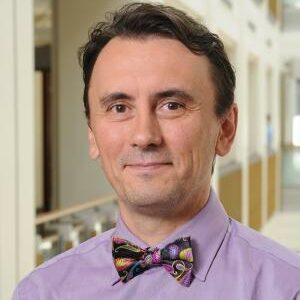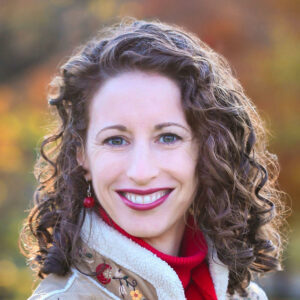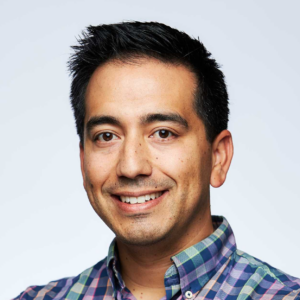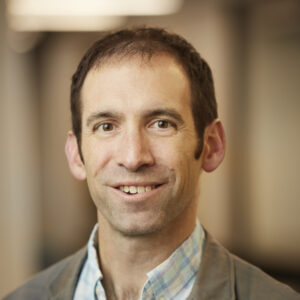Leadership
Co-Directors
-

Dan Nicolae
Elaine M. and Samuel D. Kersten, Jr. Distinguished Service Professor; Faculty Co-Director, Data Science Institute and Committee on Data Science; Professor of Statistics, Human Genetics, Medicine, Section of Genetic Medicine and the College -

Michael J Franklin
Morton D. Hull Distinguished Service Professor; Faculty Co-Director, Data Science Institute and Committee on Data Science; Senior Advisor to the Provost for Computation and Data Science
Dan Nicolae obtained his Ph.D. in statistics from The University of Chicago and has been a faculty at the same institution since 1999, with appointments in Statistics (since 1999) and Medicine (since 2006). His research focus is on developing statistical and computational methods for understanding the human genetic variation and its influence on the risk for complex traits, with an emphasis on asthma related phenotypes. The current focus in his statistical genetics research is centered on data integration and system-level approaches using large datasets that include clinical and environmental data as well as various genetics/genomics data types: DNA variation, gene expression (RNA-seq), methylation and microbiome.
Michael J. Franklin is the Morton D. Hull Distinguished Service Professor for the Department of Computer Science. He held the inaugural title of Liew Family Chair of Computer Science until September of 2023. An authority on databases, data analytics, data management and distributed systems, he also serves as senior advisor to the provost on computation and data science.
Previously, Franklin was the Thomas M. Siebel Professor of Computer Science and chair of the Computer Science Division of the Department of Electrical Engineering and Computer Sciences at the University of California, Berkeley. There, he co-founded Berkeley’s Algorithms, Machines and People Laboratory (AMPLab), a leading academic big data analytics research center. The AMPLab won a National Science Foundation CISE “Expeditions in Computing” award, which was announced as part of the White House Big Data Research initiative in March 2012, and received support from over 30 industrial sponsors. AMPLab created industry-changing open source Big Data software including Apache Spark and BDAS, the Berkeley Data Analytics Stack. At Berkeley, he also served as an executive committee member for the Berkeley Institute for Data Science, a campus-wide initiative to advance data science environments.
An energetic entrepreneur in addition to his academic work, Franklin founded and became chief technology officer of Truviso, a data analytics company acquired by Cisco Systems. He serves on the technical advisory boards of various data-driven technology companies and organizations.
Franklin is a Fellow of the Association for Computing Machinery and a two-time recipient of the ACM SIGMOD (Special Interest Group on Management of Data) “Test of Time” award. His many other honors include the outstanding advisor award from Berkeley’s Computer Science Graduate Student Association. He received the Ph.D. in Computer Science from the University of Wisconsin in 1993, a Master of Software Engineering from the Wang Institute of Graduate Studies in 1986, and the B.S. in Computer and Information Science from the University of Massachusetts in 1983.
Executive Committee
-

Rebecca Willett
Faculty Director of AI, Data Science Institute; Professor, Statistics, Computer Science, and the College -

David Uminsky
Executive Director, Data Science Institute; Senior Research Associate, Department of Computer Science -

Nick Feamster
Faculty Director of Research, Data Science Institute; Neubauer Professor of Computer Science and The College
Rebecca Willett is a Professor of Statistics and Computer Science at the University of Chicago. She completed her PhD in Electrical and Computer Engineering at Rice University in 2005 and was an Assistant then tenured Associate Professor of Electrical and Computer Engineering at Duke University from 2005 to 2013. She was an Associate Professor of Electrical and Computer Engineering, Harvey D. Spangler Faculty Scholar, and Fellow of the Wisconsin Institutes for Discovery at the University of Wisconsin-Madison from 2013 to 2018. Prof. Willett received the National Science Foundation CAREER Award in 2007, was a member of the DARPA Computer Science Study Group 2007-2011, and received an Air Force Office of Scientific Research Young Investigator Program award in 2010. Prof. Willett has also held visiting researcher positions at the Institute for Pure and Applied Mathematics at UCLA in 2004, the University of Wisconsin-Madison 2003-2005, the French National Institute for Research in Computer Science and Control (INRIA) in 2003, and the Applied Science Research and Development Laboratory at GE Medical Systems (now GE Healthcare) in 2002. Her research interests include network and imaging science with applications in medical imaging, wireless sensor networks, astronomy, and social networks. She is also an instructor for FEMMES (Females Excelling More in Math Engineering and Science; news article here) and a local exhibit leader for Sally Ride Festivals. She was a recipient of the National Science Foundation Graduate Research Fellowship, the Rice University Presidential Scholarship, the Society of Women Engineers Caterpillar Scholarship, and the Angier B. Duke Memorial Scholarship.
David Uminsky joined the University of Chicago in September 2020 as a senior research associate and Executive Director of Data Science. He was previously an associate professor of Mathematics and Executive Director of the Data Institute at University of San Francisco (USF). His research interests are in machine learning, signal processing, pattern formation, and dynamical systems. David is an associate editor of the Harvard Data Science Review. He was selected in 2015 by the National Academy of Sciences as a Kavli Frontiers of Science Fellow. He is also the founding Director of the BS in Data Science at USF and served as Director of the MS in Data Science program from 2014-2019. During the summer of 2018, David served as the Director of Research for the Mathematical Science Research Institute Undergrad Program on the topic of Mathematical Data Science.
Before joining USF he was a combined NSF and UC President’s Fellow at UCLA, where he was awarded the Chancellor’s Award for outstanding postdoctoral research. He holds a Ph.D. in Mathematics from Boston University and a BS in Mathematics from Harvey Mudd College.
Nick Feamster is Neubauer Professor in the Department of Computer Science and the College and the Faculty Director of Research for the Data Science Institute. He researches computer networking and networked systems, with a particular interest in Internet censorship, privacy, and the Internet of Things. His work on experimental networked systems and security aims to make networks easier to manage, more secure, and more available.